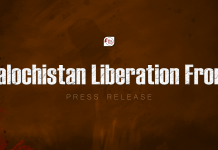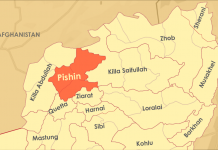The United Nations has called on Pakistan to ratify the International Convention for the Protection of All Persons from Enforced Disappearance and to allocate sufficient resources to develop and implement measures to prevent and end enforced disappearances, particularly among marginalized ethnic groups, including the Baloch.
At a meeting in Geneva on Friday, the UN Committee on the Elimination of Racial Discrimination issued its findings on Pakistan. The committee urged Islamabad to take all necessary measures to investigate and prosecute reports of enforced disappearances involving ethnic and ethno-religious leaders, politicians, public officials, and human rights defenders. The committee emphasized that those found guilty must be held accountable and face penalties commensurate with the crime.
The UN panel also recommended that the Pakistani government ensure that victims and their families receive appropriate reparations, including cessation, guarantees of non-repetition, restitution, compensation, and rehabilitation.
Additionally, the UN committee called for the reform or repeal of Pakistan’s blasphemy laws, particularly those that impose severe penalties such as life imprisonment or the death penalty. The committee stressed that these laws must be specific, not broad or vague, and must align with international human rights standards.
The committee addressed economic disparities, urging Pakistan to reduce poverty and unemployment among marginalized ethnic groups, including the Baloch. It recommended facilitating equal access to employment opportunities, providing training and support for small business development, adopting institutional measures to increase reinvestment into local communities—including those in Balochistan—from revenues generated by natural resource exploitation, and requiring thorough consultations with affected communities to obtain their free, prior, and informed consent before granting licenses for resource exploitation.
The UN committee also called for improvements in housing and living conditions in areas where ethnic minority groups reside, particularly in terms of infrastructure and access to basic social welfare services such as clean water, sanitation, and electricity.
Finally, the committee urged Pakistan to rigorously investigate all complaints of harassment, intimidation, and excessive use of force by security and law enforcement officials, particularly at checkpoints.






























